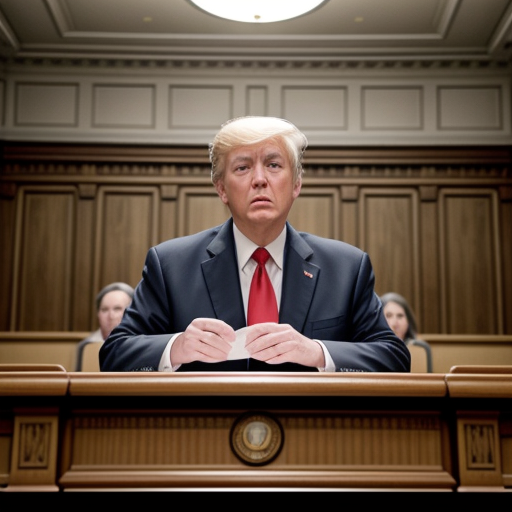
In a crucial move that goes to the heart of the ongoing criminal investigation into former President Donald Trump, Supreme Court Justice Clarence Thomas has raised fundamental questions about the legitimacy of the special counsel appointed to prosecute Trump. At the heart of Thomas's inquiry is the authority of the special counsel's office to bring charges against a former president in the absence of a Senate confirmation, a constitutional requirement for federal prosecutors.
During a nearly three-hour session of oral arguments before the Supreme Court, Justice Thomas pressed Trump's attorney John Sauer on the issue, asking, "Did you, in this litigation, challenge the appointment of special counsel?" Sauer responded that Trump's legal team had not directly raised this concern in the current case, which centers around Trump's claims of immunity from prosecution for actions taken as president. Nonetheless, Sauer indicated that Trump's attorneys fully support the position advanced by former Attorney Generals Edwin Meese III and Michael Mukasey, who have questioned the lawful authority of Special Counsel Jack Smith in a 42-page amicus brief submitted to the court.
In their brief, Meese and Mukasey argue that Smith and the Office of Special Counsel lack the necessary authority to prosecute Trump, primarily due to Smith's lack of Senate confirmation. They assert that the special counsel's broad powers, including the ability to convene grand juries and make prosecutorial decisions independently of the White House or the attorney general, effectively make Smith more powerful than any other government official who has not undergone the Senate confirmation process. Meese and Mukasey further argue that the 1974 Supreme Court case cited by the special counsel's office as justification for Smith's appointment is irrelevant, as it did not involve the appointment of a specific individual as a special prosecutor but rather the relationship between the president and the Department of Justice as an institution.
Special Counsel's Authority Under Scrutiny
The questions raised by Justice Thomas and the arguments presented by Meese and Mukasey have thrown the legitimacy of the special counsel's prosecution of Trump into doubt. Trump's attorneys have objected to Smith's appointment in both the classified documents case and the election interference investigation, alleging that the special counsel's office is politically motivated and that Smith lacks the authority to prosecute a former president. The Florida court has yet to rule on Trump's motion to dismiss the classified documents case, but the Supreme Court is expected to issue a ruling on Trump's immunity arguments before the end of its term in June.
The outcome of these legal battles will have significant implications for the future of the special counsel's investigation and for the precedent it sets for the prosecution of former presidents. If the Supreme Court were to uphold Justice Thomas's concerns and Meese and Mukasey's arguments, it could potentially derail the special counsel's investigation, or at the very least, significantly limit its scope and authority. Conversely, a ruling in favor of the special counsel's authority would allow the investigation to proceed unimpeded and could set the stage for criminal charges against the former president.
Special Counsel Investigations and Senate Confirmation
While special counsel investigations are not uncommon, the issue of Senate confirmation for the individual appointed as special counsel has rarely been raised. Traditionally, special counsels have been confirmed by the Senate to various positions before being appointed to lead investigations. In the absence of a Senate confirmation, the authority of the special counsel to prosecute a former president, or any other individual for that matter, could be called into question. The Supreme Court's eventual ruling on this issue will provide clarity on the scope of authority granted to special counsels and the extent to which Senate confirmation is required for the prosecution of high-profile individuals.


.png)
0 Comments